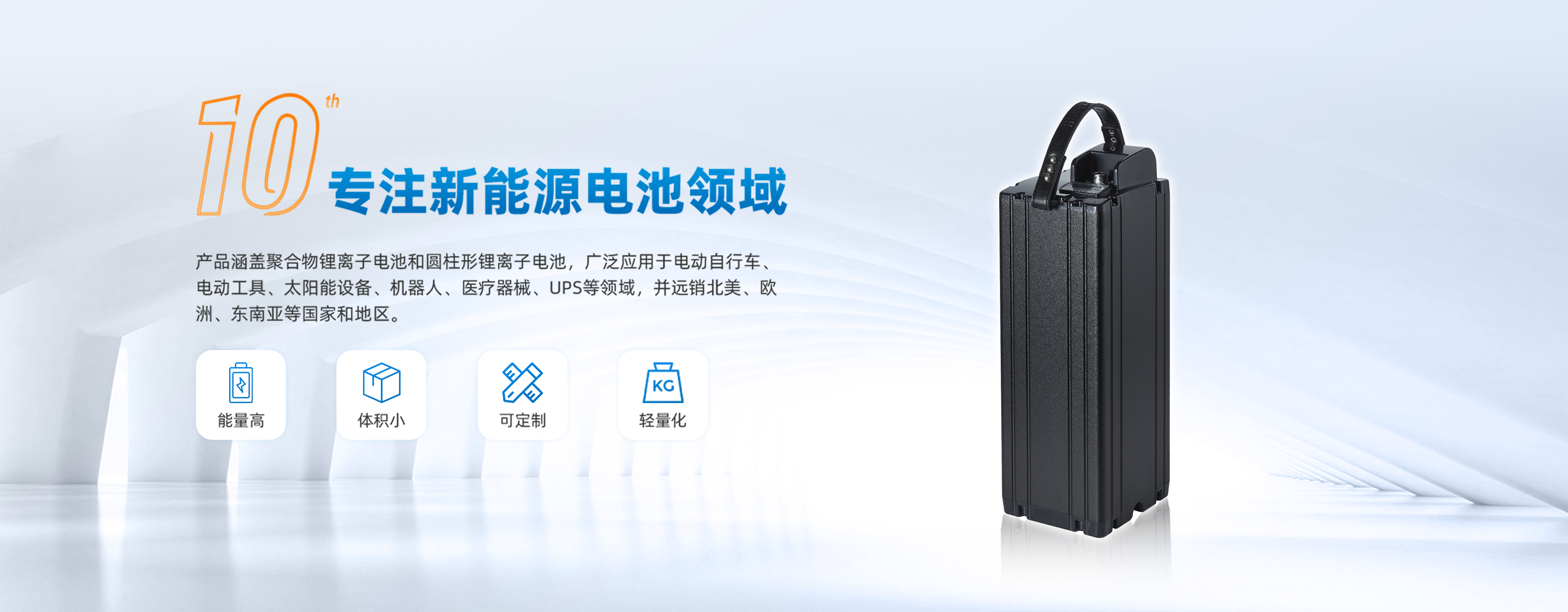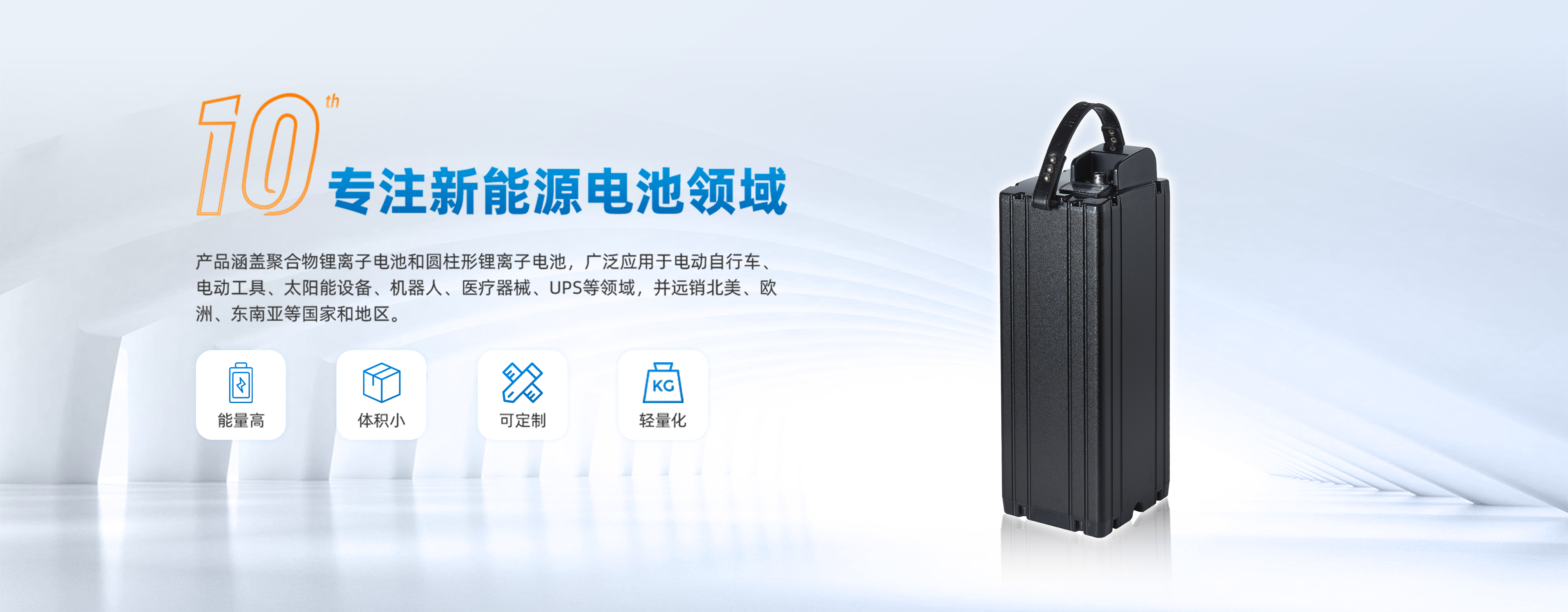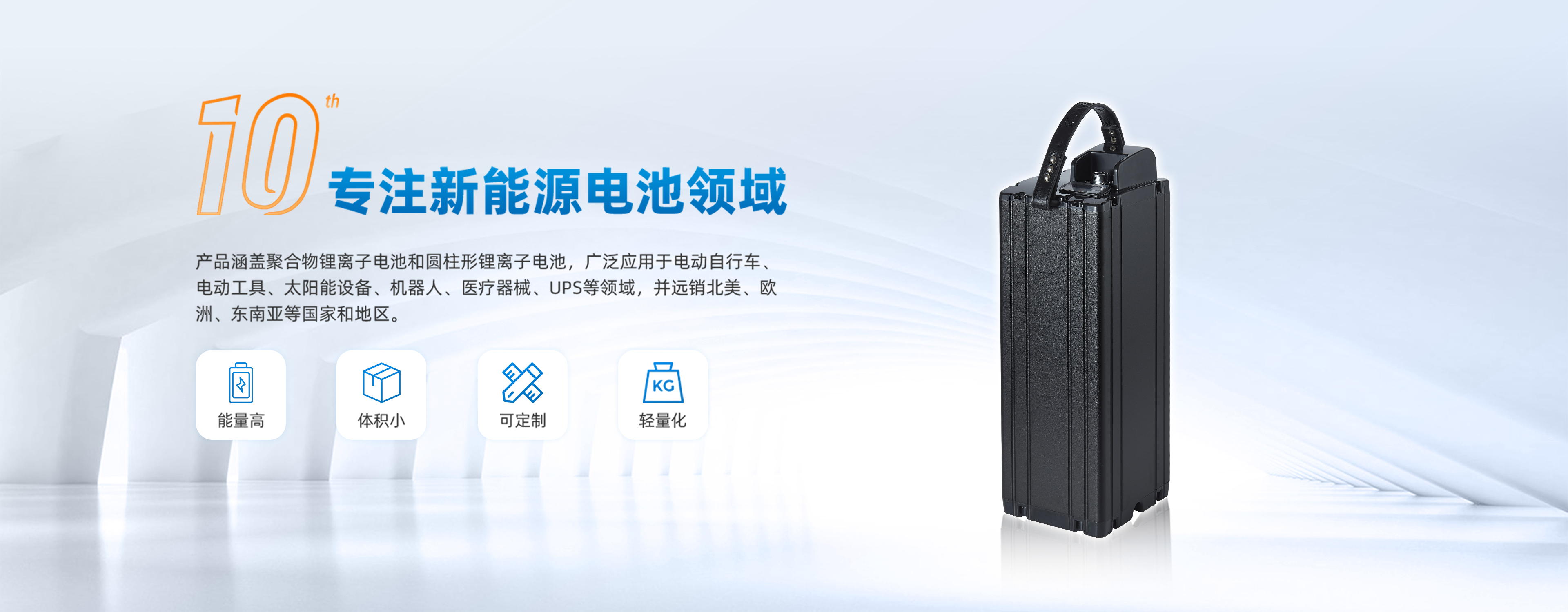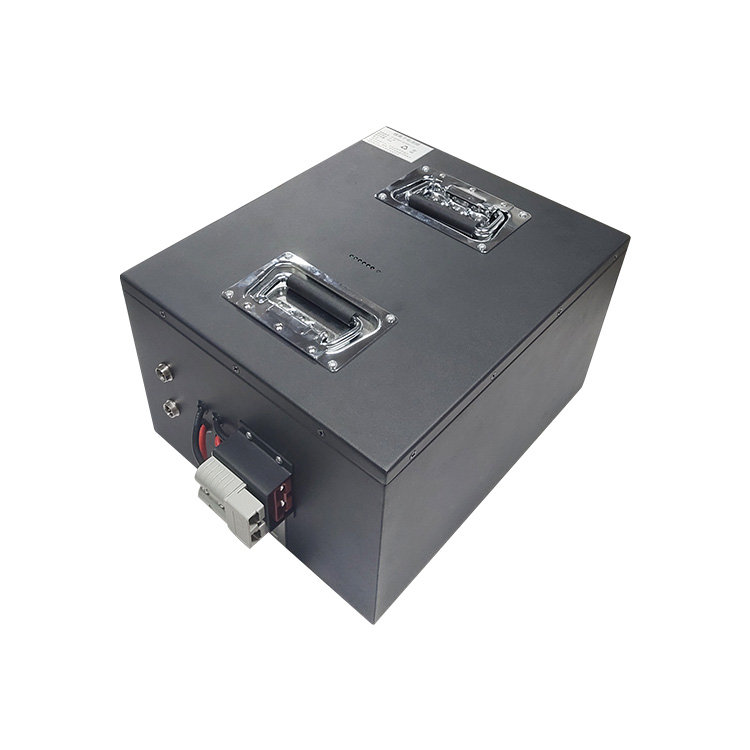The First National Lithium Battery Industry Project Evaluation Policy Is Released
On December 4, nine departments including Sichuan Provincial Department of Economy and Information Technology jointly issued the implementation plan for carrying out lithium battery industry project evaluation to promote high-quality development (Trial) (hereinafter referred to as the implementation plan), the "implementation plan" is the first special policy plan for project evaluation of lithium battery industry in China, aiming at effectively coping with the risks of structural and periodic overcapacity of lithium battery industry, overall development and safety, it is the first to carry out the project evaluation of lithium battery industry, optimize the regional industrial layout, improve the industrial level, actively serve the supply chain security of the national new energy and new materials industry chain, and promote the realization of "energy freedom" in large countries ", create an industrial business card that" Sichuan Zhijian "supports made in China.
This evaluation covers the development of lithium resources, basic lithium salt, cathode material, negative electrode material, electrolyte (including electrolyte), separator, lithium ion battery, cascade development and comprehensive recycling of waste batteries, etc, middle and downstream industrial link projects.
Notice of 9 departments such as Sichuan Provincial Department of Economy and Information Technology on issuing the implementation plan for carrying out lithium battery industry project evaluation to promote high-quality development (trial)
no. 6, Chuan jingxingui [2024]
municipal (state) Economic and Information Bureau, science and technology department, Natural Resources Bureau, Commerce Bureau, emergency management bureau, market supervision bureau, Bureau of Statistics, economic cooperation department and Tax Bureau:
in order to conscientiously implement the "promotion" of 7 departments such as the Department of Economy and Information Technology
Sichuan Provincial Department of Economy and Information Technology Sichuan Provincial Department of Science and Technology
department of Natural Resources of Sichuan Province Department of Commerce of Sichuan province
sichuan emergency management office Sichuan Market Supervision Administration Bureau
bureau of Economic Cooperation of Sichuan province
state Administration of Taxation Sichuan Taxation Bureau
december 2, 2024
implementation plan on carrying out project evaluation of lithium battery industry and promoting high-quality development
(Trial)
in order to coordinate development and safety, promote the high-quality development of lithium battery industry, adhere to the combination of city and county main bodies and three-level linkage, the combination of innovation and excellence first and scientific layout, and the combination of result orientation and classification policies, establish a high quality development project evaluation system of lithium battery industry with the core of upgrading and multiplying quality, focusing on comprehensive evaluation, grading, dynamic management and precise implementation, optimize the allocation of project resource elements, enhance the industrial chain, innovation chain, value chain, improve project performance and output benefits, promote equipment renewal and technological transformation, cultivate and form new quality productivity, build a full life cycle industrial ecosystem, and build a world-class lithium battery industry base, this implementation plan is specially formulated.
I. Main objectives
through comprehensively constructing the evaluation system of high-quality development projects of lithium battery industry with scientific evaluation methods, perfect index system, comprehensive application of results and prominent guiding role, optimizing and perfecting land, finance, finance, energy, the allocation mechanism of resource factors such as talents guides all regions to improve the quality of project construction, defines the investment threshold for new projects, promotes the technological transformation and upgrading of completed projects, and avoids low-level homogeneous competition, promote the continuous improvement of the development quality and comprehensive strength of the lithium battery industry in the whole province, and build a new industrial pattern with better quality benefits, stronger technological innovation, higher green security and better factor allocation, to realize the "Sichuan lithium battery" for the whole country to sell all over the world, providing strong support for the advanced material industry to increase the quality.
II. Evaluation organization
(One) evaluation scope. This evaluation covers the development of lithium resources, basic lithium salt, cathode material, negative electrode material, electrolyte (including electrolyte), separator, lithium ion battery, cascade development and comprehensive recycling of waste batteries, etc, middle and downstream industrial link projects.
(Ii) evaluation time series. Organize and implement according to the time series of project construction, which is divided into the pre-evaluation of the proposed project and the annual evaluation of the existing project. For the proposed project, the pre-evaluation should be completed during the project recruitment and negotiation period or before the project is established, and the evaluation can also be organized at any time according to the work needs; For the existing project, the annual evaluation shall be completed before the end of June each year after the first operating income is obtained from the normal operation of the project. For those who have not been put into operation (except those who have not been completed and put into operation for more than 5 years since the land is obtained), for independent legal person projects that have been newly built and put into operation for less than one year after obtaining the business license or in that year, the protection mechanism that only participates in the evaluation and does not rate and file for the time being is adopted.
(Iii) evaluation process. The project evaluation is implemented in a step-by-step evaluation system, which is implemented in the form of land-based and hierarchical organization. The reporting unit of project evaluation is the owner unit of the project, and the Economic and Information Bureau of each city (state) is responsible for carrying out preliminary evaluation of lithium battery industry projects in the region, forming the preliminary examination report of project evaluation and submitting it to the Economic and Information Department. After receiving the project application evaluation materials and preliminary evaluation reports submitted by the city (state), the Department of Economy and Information Technology will jointly carry out the project substantive evaluation with third-party research institutions and research institutes with relevant qualifications, after consulting the opinions of relevant departments (units) of the provincial government, study and put forward the project evaluation results, and timely feedback the project evaluation results to the project owner unit and the local economic and credit department.
III. Evaluation methods
(1) evaluation system. Project Evaluation adheres to the principle of combining practicability, operability, qualitative and quantitative, and establishes an evaluation index system combining "one vote veto + trunk index + advantage index" according to the multi-index comprehensive evaluation method, it is divided into pre-evaluation and substantive evaluation. Pre-evaluationThe price is the "one vote veto" indicator, which mainly evaluates whether the project conforms to relevant national and provincial industrial policies and resource development and utilization, ecological environment protection, energy conservation management, safe production, credit rating and other bottom line red line requirements, the proposed project that does not pass the index should be prohibited from starting construction according to the requirements of relevant laws and regulations, and the stock project that does not pass should strictly control the scale according to the requirements of relevant laws and regulations, gradually move out or upgrade within a time limit. Substantive evaluation focuses on three key points: high-end, intelligent and green. Based on factors such as data accuracy, timeliness, integrity, applicability and simplicity, evaluation indicators are set according to the classification of proposed projects and existing projects, contains backbone metrics and advantage metrics. Main indicators include project investment level, economic benefits, technological innovation ability, green intelligent production level, leading and leading role, etc. Advantage indicators include comprehensive competitiveness, significant contribution, etc.
(2) grading evaluation. The project evaluation adopts multi-factor comprehensive analysis method and calculates the evaluation score according to various indexes, sub-goals and target weight values. The lowest score of each index is 0, and the total score of backbone index is 100. In order to guide and encourage enterprises to continuously improve their comprehensive competitiveness, the advantage index is taken as the bonus index, and the total bonus is no more than 10 points. According to the ranking of Project Comprehensive evaluation scores, the participating projects are divided into three levels: A, B and C. 80 (inclusive)-110 is divided into "Class A Project", 60 (inclusive)-80 is divided into "Class B project", and below 60 points is "Class C Project". Class A projects (priority support) are projects with high investment intensity, good output efficiency, high technology content and strong driving ability; Class B projects (encourage promotion) for projects with good quality benefits and technical level, but the development level needs to be further improved; Class C projects (forced transformation) are comprehensive benefits and technical level lagging behind, projects that need to adjust the project construction content or force to accelerate the transformation and development.
(3) dynamic management. Implement dynamic management for the classification of three types of projects A, B and C. Each index value of the proposed new project is taken as the evaluation data of the project and the approval value of the competent department. Each index value of the existing project is taken as the number of the whole year of the enterprise in the previous year, in principle, update the data of the previous year of the project before the end of June of the next year, re-evaluate according to the data of the previous year, and adjust the rating according to the evaluation score. Typical Cases of large and above environmental emergencies in that year and included in the notification of central and provincial ecological environment protection inspectorsThe death accident is directly attributed to class C. On the basis of sorting according to the comprehensive score of the project, the development of lithium resources, new positive/negative materials, solid electrolyte, new diaphragm, composite collector, new battery, after the projects of cascade development and comprehensive recycling of waste batteries, which have been examined and identified as the projects of major extension chain, the transformation projects of cutting-edge achievements and the major investment attraction projects in the whole province, priority is given to lifting and carrying, and the evaluation results can be directly classified as Class A.
IV. Application of results
(1) implement differentiated project supporting policies. Highlight positive incentives, strengthen the application of results, and in accordance with the principle of "high quality and high efficiency, and more supply of factors", coupling magnify the guiding role of government allocation of resource elements and the basic regulation role of the market. Adhere to the principle of provincial guidance, City (state) leading, county (city, district) subject, strengthen policy coordination by provincial departments, City (state) refine and formulate differentiated incentive and support policies and measures and implement them. Build an incentive and constraint mechanism for resource elements such as approval, energy use, water use, emission, finance, finance, etc. linked to the project, focusing on plus-sized positive incentives for Class A projects and reverse force for Class C projects. Give priority to supporting class A projects to be listed in the provincial key projects list, support their share reform, mergers and acquisitions, award and awards in government, declaration of financial funds subsidies, and the policy of doubling the quality of six advantageous industries, special policy of "transformation of intelligent transformation", key scientific and technological projects, declaration of pilot demonstration projects, construction of major innovation carriers and main enterprises of symbolic product chains, special "little giant" enterprise evaluation and other aspects to give support. To guide the local government to promote Class B projects prudently, with the overall support of the local government, to promote the technical transformation and upgrading of the project. Implement differentiated policies for Class C projects, strictly apply laws and regulations on environmental protection, safe production, resource conservation, product quality and other aspects as well as relevant national and provincial industrial policies, implement rectification according to laws and regulations, accelerate transformation and upgrading, transformation and upgrading.
(Ii) implement differentiated fiscal and financial policies. Give priority to supporting the provincial policy support funds of the reporting country for Class A projects. Guide all kinds of government industry investment funds to give priority to the construction of Class A projects. For Class A,The rate of industrial injury insurance for Class B projects has risen to 50% of the benchmark rate this year. Support financial institutions to implement differentiated credit policies, and innovate credit rating, loan access, loan credit and guarantee methods for Class A projects under the premise of compliance with laws and regulations, controllable risks and sustainable business, the innovation of repayment methods and preferential interest rates and other financial services will be given key support. The annual new credit indicators of financial institutions will be inclined to Class A and Class B projects, guide financial institutions to strictly control project loans for category C projects to simply expand production capacity. Give priority to supporting class A projects to be included in the demonstration pilot of foreign trade quality improvement and efficiency improvement projects.
(3) implement differentiated factor guarantee policies. Implement differentiated policies in terms of land security such as new land supply, secondary development of existing land, land supply price and land use life, and give priority to ensuring land demand for Class A and Class B projects, when determining the reserve price of land transfer, it can be implemented at a rate not lower than 70% of the minimum price standard of industrial land transfer. In principle, it will not be arranged for the newly added capacity land for Class C projects. Within the range of price upper limit and lower limit, price reduction policies are implemented for Class A and Class B projects in terms of water use, gas use, sewage treatment fees, etc., and annual total energy consumption control is implemented for Class C projects. On the premise of conforming to the regional environmental impact assessment and air quality, we will give support to Class A and Class B projects in the aspects of emission rights index allocation, emission rights mortgage loan, etc, strictly control the total amount of pollutant emissions for Class C projects.
V. Safeguard measures
(1) strengthen organizational leadership. Establish a coordination mechanism for the development of lithium industry to guide the evaluation of high-quality development projects of lithium industry in the whole province. The coordination mechanism is mainly composed of comrades in charge of the Department of Economy and Information Technology as conveners, and relevant departments at the provincial level as member units. The member units of the coordination mechanism and other relevant units shall study and formulate supporting policies and measures for project evaluation according to their respective responsibilities, and strengthen the guidance to the work of cities and counties. All cities (states) and counties (cities, districts) should implement the main responsibility, improve the working mechanism, formulate implementation plans and supporting policies, and promote the evaluation of high-quality development projects of lithium battery industry to achieve effective results.
(3) strengthen the application of results. Combine the evaluation results of the project with the optimized layout of the industry, the upgrading of the industrial park, the support of special financial funds, etc. to create a strong atmosphere conducive to the competition of the project horse race and the development of enterprise competition. Strengthen innovation as the fundamental driving force to lead the development and improve the quality and efficiency, implement the leader Action Plan, publish the list of project evaluation leader Projects, establish advanced models, guide enterprises to advanced benchmarking, make up short boards, strengthen technology, innovation in management, manufacturing methods and business models will accelerate industrial upgrading and foster advanced manufacturing clusters.
(4) Create a good atmosphere. Relevant departments of each city (state) should strengthen the interpretation of relevant laws and regulations, evaluation indicators and supporting policies, properly handle the relationship between reform and innovation, development and stability, and create government promotion, enterprise-led, the good atmosphere of social participation guides the government and enterprises to change their development concepts, and effectively establishes the high-quality development orientation of evaluation work. Strengthen data and information security management, and do not publicly release project-related data information in violation of regulations.
VI. Others
this implementation plan is explained by the Department of Economy and Information Technology and will be implemented from the date of release. It is valid for 2 years and will be adjusted timely in combination with relevant national and provincial policies and regulations and developing situation of the industry.
 Dongguan Juneng New Energy Technology Co., Ltd.
Dongguan Juneng New Energy Technology Co., Ltd.
 137 5142 6524(Miss Gao)
137 5142 6524(Miss Gao)
 susiegao@power-ing.com
susiegao@power-ing.com
 Xinghuiyuan High tech Industrial Park, Dalang Town, Dongguan City, Guangdong Province
Xinghuiyuan High tech Industrial Park, Dalang Town, Dongguan City, Guangdong Province













 Yue Gong Wang An Bei No. 4419002007491
Yue Gong Wang An Bei No. 4419002007491